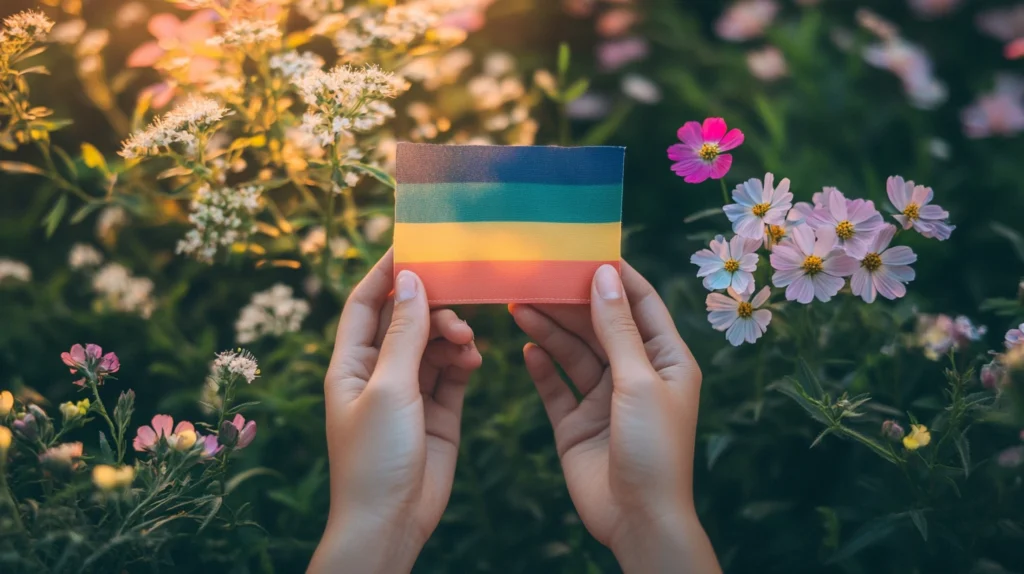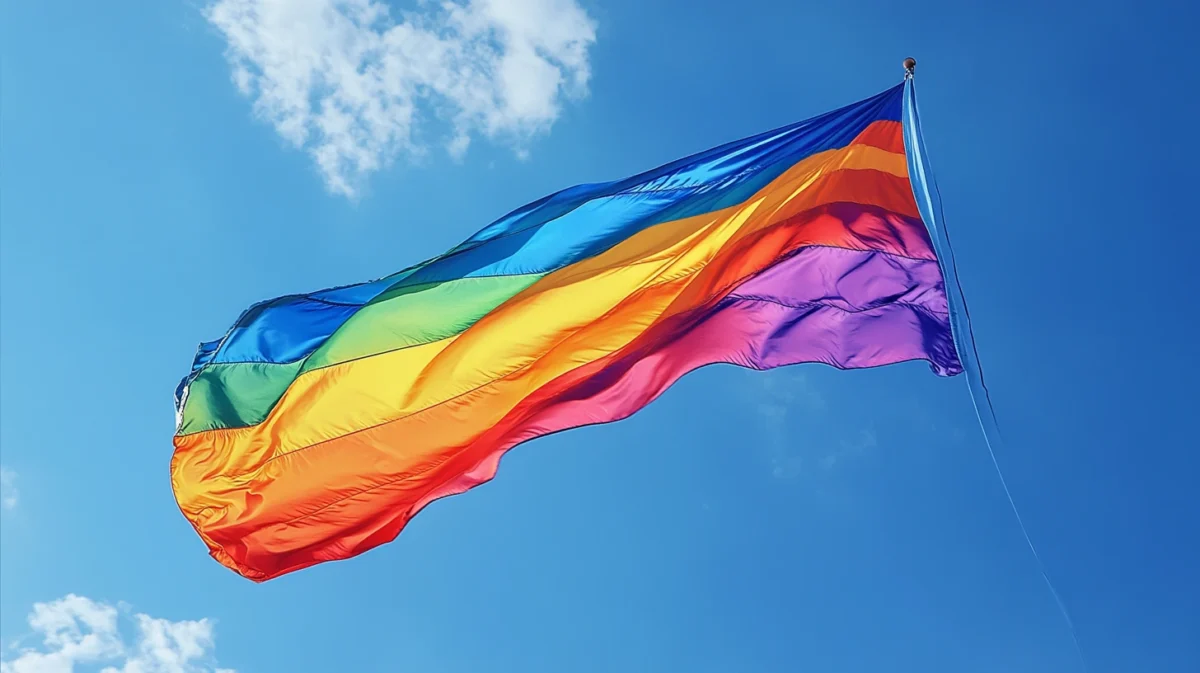The sapphic flag is a vibrant and meaningful symbol in the LGBTQ+ community, representing love and attraction between women and nonbinary people who love women. While it shares space with the iconic lesbian flag, the sapphic flag has its own unique history and significance.
In this guide, we’ll explore the origins, colors, and meaning of the sapphic flag, answer common questions about sapphic identity, and highlight how this flag celebrates inclusivity and diversity.
Don’t miss our guide to Lesbian Flag Meaning and Colors for a deeper dive into LGBTQ+ symbolism.
Table of Contents
What Does It Mean to Be Sapphic?
Understanding the Term “Sapphic”
The word sapphic is inspired by the ancient Greek poet Sappho, whose writings celebrated love between women. Today, sapphic refers to women and nonbinary individuals who are attracted to women.
It’s an inclusive term that can encompass:
- Lesbians
- Bisexual and pansexual women
- Nonbinary people with attraction to women
Why Sapphic Is More Than a Label
Sapphic identity offers a sense of community and belonging for those who don’t feel comfortable using strict labels like “lesbian.” It celebrates all forms of woman-loving-woman (WLW) attraction and romantic connection.
Looking for inspiration? Try our What Kind of Lesbian Am I Quiz to explore your unique identity.
What Does the Sapphic Flag Mean?

Origins of the Sapphic Flag
The sapphic flag emerged as a way to represent sapphic individuals in the LGBTQ+ community. Unlike the rainbow flag, which symbolizes LGBTQ+ unity as a whole, the sapphic flag specifically highlights women-loving-women relationships and identities.
Sapphic Flag Colors and Symbolism
The sapphic flag usually consists of soft shades of pink, purple, and orange. Each color represents different aspects of sapphic love and identity:
| Color | Meaning |
|---|---|
| Pink | Love and attraction between women |
| Light Orange | Community and friendship |
| White | Nonbinary sapphics and inclusivity |
| Light Purple | Fluidity and diversity in sapphic love |
| Dark Purple | Strength and resilience of sapphic people |
Variations of the Sapphic Flag
Like many LGBTQ+ symbols, the sapphic flag has evolved into different variations. Some designs include floral imagery, such as violets or lilies, inspired by Sappho’s poetry.
Discover great ideas like Types of Lesbian Relationships to learn more about diverse identities in queer spaces.
Sapphic Flag vs Lesbian Flag
How Are They Different?
While both flags celebrate attraction between women, there are key differences:
- Sapphic Flag: Inclusive of women and nonbinary people who love women.
- Lesbian Flag: Focuses specifically on lesbian women.
When to Use Each Flag
You might see the sapphic flag at pride events or in online spaces where inclusivity and fluidity of identity are emphasized. The lesbian flag remains a strong symbol for women exclusively attracted to women.
Check out Lesbian Flag Meaning for a detailed history of the lesbian pride flag.
Can You Be Straight and Sapphic?
Straight and Sapphic: Is It Possible?
By definition, sapphic describes attraction to women. A straight woman would not typically fall under the sapphic umbrella. However, questioning women or those exploring their sexuality might find the sapphic identity a welcoming space for self-discovery.
WLW vs Sapphic: Understanding the Terms

What Does WLW Mean?
WLW stands for “women-loving-women” and includes lesbians, bisexual women, and pansexual women.
Sapphic as an Umbrella Term
While WLW focuses on women, sapphic also includes nonbinary people who experience attraction to women, making it broader and more inclusive.
Representation of Sapphic Identity in Media
Celebrating Sapphic Visibility
In recent years, sapphic representation in films, TV shows, and books has grown. Characters and relationships reflecting sapphic love help normalize and validate these experiences.
Iconic Sapphic Symbols
Flowers like violets and lilies are often paired with the sapphic flag in art and literature, creating a sense of romanticism and history.
Don’t miss our list of Lesbian Movies that showcase diverse WLW stories.
Common Myths About the Sapphic Flag
Myth 1: The Sapphic Flag Is Just for Lesbians
Not true. The sapphic flag represents a broader spectrum of identities beyond lesbian women.
Myth 2: Sapphic and WLW Are the Same
While similar, sapphic includes nonbinary people, whereas WLW refers specifically to women-loving-women.
FAQs About the Sapphic Flag
What does it mean to be sapphic?
Being sapphic means identifying as a woman or nonbinary person who experiences attraction to women.
What does the sapphic flag mean?
The sapphic flag symbolizes love, inclusivity, and solidarity among sapphic individuals.
Can you be straight and sapphic?
No, as sapphic implies some level of attraction to women.
What is the difference between WLW and sapphic?
WLW includes only women, while sapphic also welcomes nonbinary individuals.
Conclusion: Embracing the Sapphic Flag and Identity
The sapphic flag is more than a piece of fabric—it’s a powerful emblem of love, inclusivity, and community. Whether you’re exploring your identity or standing in solidarity with sapphic people, this flag is a meaningful way to celebrate woman-loving-woman relationships.
Check out our guide to Lesbian Dating Tips for Beginners to learn how to navigate love in the sapphic community.
